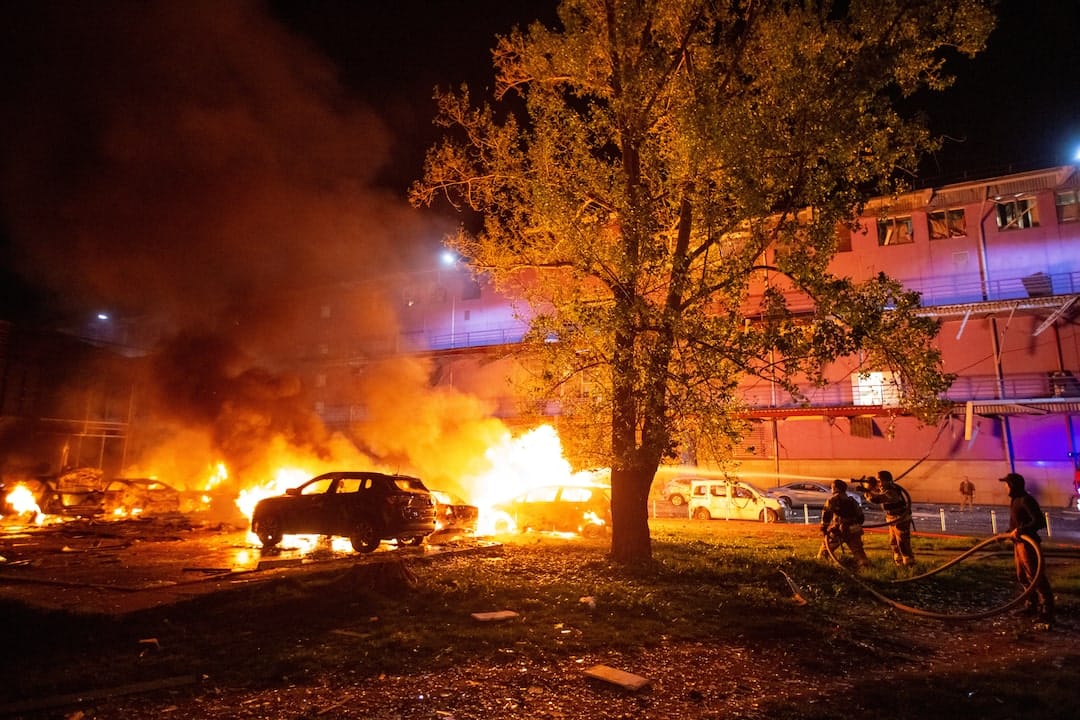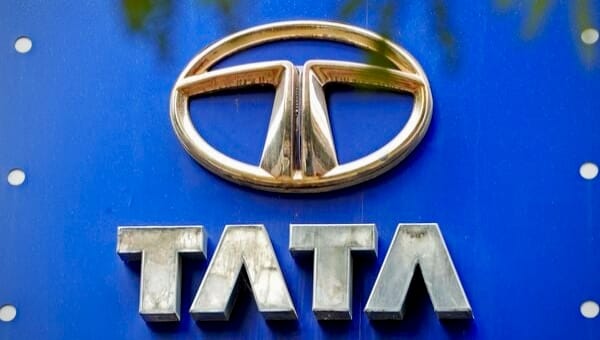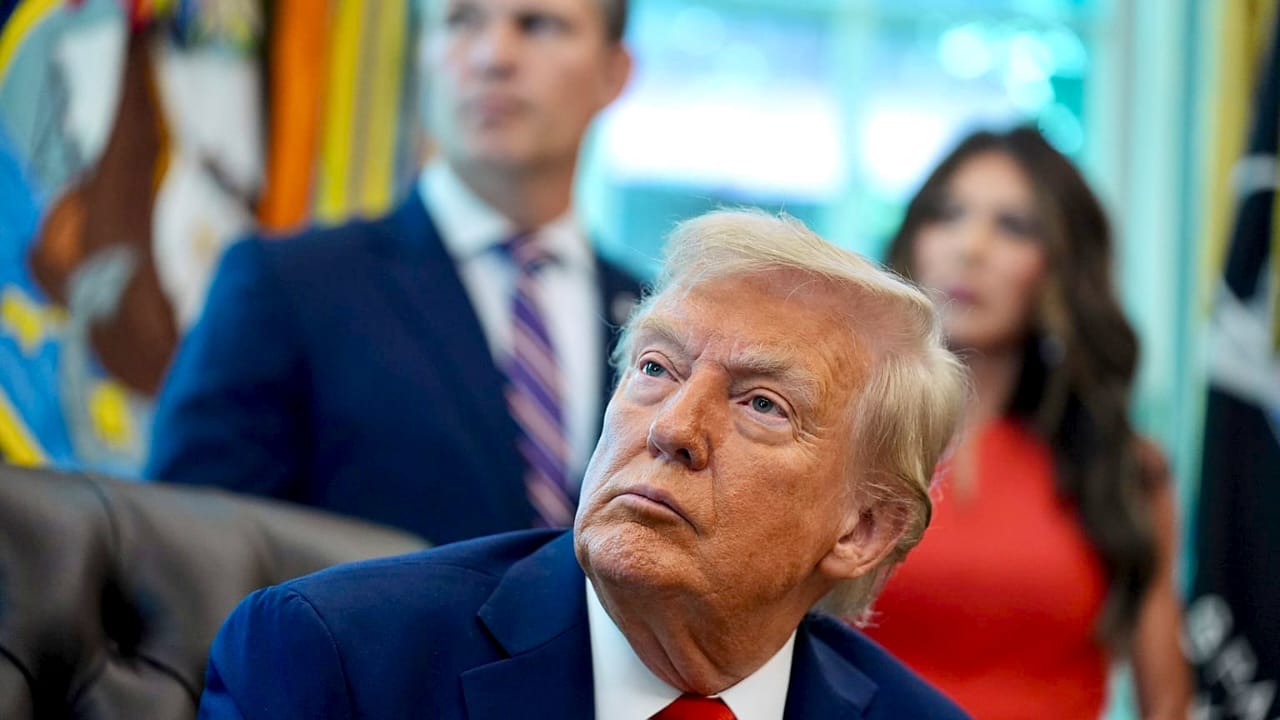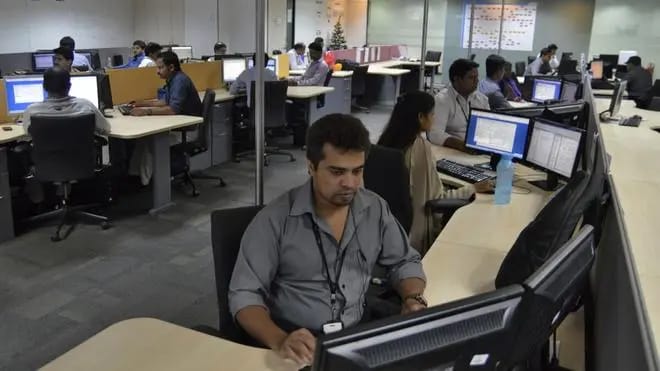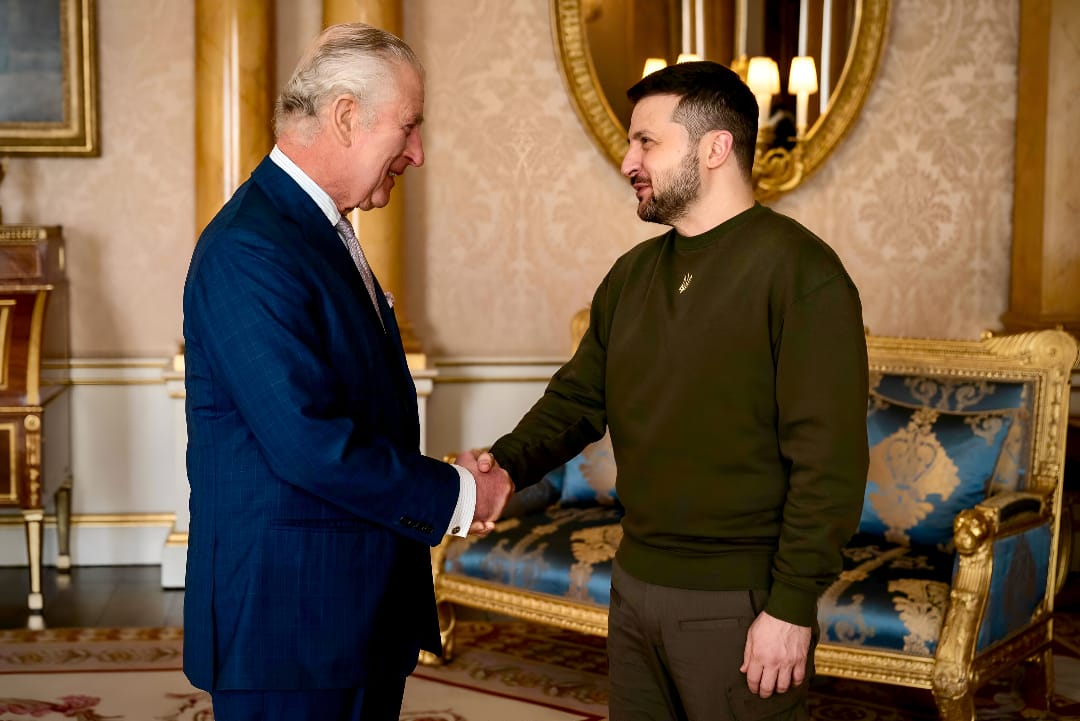
Zelenskyy’s London Appeal: A Desperate Gambit for Ukraine’s Future Amidst Global Tensions
London, UK — October 24, 2025— Ukrainian President Volodymyr Zelenskyy arrived in London today, embarking on a critical diplomatic mission that saw him meet King Charles III, engage in bilateral talks with Prime Minister Keir Starmer at Downing Street, and convene with a “coalition of the willing” to galvanize further support for Ukraine’s beleaguered defenses. The visit, set against a backdrop of escalating battlefield losses, new Western sanctions targeting Russia’s energy backbone, and deepening global economic fissures, primarily sought to unlock billions in frozen Russian assets to fund Ukraine’s war efforts and secure commitments for long-range military capabilities. Yet, the complex legal and political hurdles surrounding these assets, coupled with broader geopolitical shifts involving China, Europe, and a newly assertive US administration under Donald Trump, underscore the precarious tightrope Kyiv walks as the war grinds into its fourth year.
The London Agenda: Unlocking Billions, Fortifying Defenses
President Zelenskyy’s arrival in London was more than a mere courtesy call; it was a urgent appeal for strategic resources. His primary objective: to solidify international consensus around using frozen Russian sovereign assets – estimated at over $300 billion, predominantly held in European financial institutions like Belgium’s Euroclear – to finance Ukraine’s reconstruction and ongoing military needs. This initiative, championed by the UK and the US, seeks to provide Kyiv with a more stable, substantial funding mechanism, bypassing the often-contentious annual aid packages.
However, the path to unlocking these funds is fraught with legal complexities and political dissent. Belgium, as the custodian of the largest tranche of these assets, remains a significant holdout. Prime Minister Bart De Wever voiced strong reservations just yesterday, emphasizing the “uncharted territory” of such a move and warning of being “buried in litigation.” The legal precedents are murky, and concerns abound regarding potential retaliatory measures from Russia, as well as the long-term implications for international law and the sanctity of sovereign assets.
Beyond the financial leverage, Zelenskyy pressed for advanced long-range missile systems, a critical ask as Ukrainian forces contend with Russian advances in the east, including the reported capture of three more villages. These capabilities are crucial for disrupting Russian logistics and striking deeper into occupied territories, potentially shifting the dynamics of a protracted war that has seen both sides dig in for a grinding attritional battle.
Escalating Sanctions and Global Energy Ripples
The London talks coincided with a fresh wave of economic pressure on Moscow. The US, under President Trump’s second term, this week sanctioned Russia’s largest oil companies, Lukoil and Rosneft, marking a significant escalation. This move, a departure from some initial expectations of Trump’s stance on Russia, sent ripples through global energy markets. Concurrently, the EU approved its 19th package of sanctions, including a ban on Russian liquefied natural gas imports.
These sanctions aim to choke Russia’s war chest, but their efficacy is a complex calculus. Reports from Reuters indicate that Ukrainian drone strikes on Russian refineries are already driving fuel price hikes in Central Asian nations like Tajikistan, where the A-95 grade gasoline has risen by 3.54% and diesel by 5.58% since early October. This highlights the localized economic distress caused by the conflict, extending far beyond the immediate belligerents.
The broader implications for global energy are substantial. While Russia claims it will never bow to US pressure, President Putin conceded that the new sanctions could cause “some economic pain.” Crucially, China and India, major consumers of Russian oil since 2022, are reportedly scaling back imports in the wake of the latest US measures. This shift could force Russia to seek new buyers or offer steeper discounts, further impacting its revenue stream, but also creating volatility in a global oil market already navigating OPEC+ decisions and Middle East tensions.
Not all European nations are unified in their approach. Hungary, under Prime Minister Viktor Orbán, continues to seek ways to “circumvent” US sanctions on Russian oil, underscoring the persistent divisions within the EU regarding energy security and geopolitical alignment. This internal discord risks diluting the collective impact of Western sanctions.
The Geopolitical Chessboard: China, Europe, and Critical Supply Chains
Zelenskyy’s plea in London also unfolds against a wider tapestry of global geopolitical realignment and economic anxieties. Germany’s Foreign Minister, Johann Wadephul, postponed his visit to China amid mounting fears that Beijing’s restrictions on semiconductor and rare earth exports could cripple the backbone of German manufacturing: its automotive industry. This concern is not isolated.
A team of senior EU officials will head to China next week for urgent talks, desperately seeking to untangle Europe from a burgeoning trade war between the US and China. The immediate trigger: China’s ban on exports of semiconductors made by Chinese-owned Nexperia (following the Dutch government’s takeover of its Nijmegen facility) and recent restrictions on rare earth exports. China’s near-monopoly on global rare earth supplies means that even small disruptions could halt production lines for everything from EVs to consumer electronics, as critical components like magnets for car windows and boot openings become unavailable.
For investors, this signals an era of heightened supply chain risk. Companies heavily reliant on Chinese rare earths or semiconductors face increasing pressure to diversify sourcing, a costly and time-consuming endeavor. Policymakers in Brussels and Berlin are grappling with the dual challenge of de-risking supply chains from China while avoiding a complete economic decoupling that could plunge global trade into deeper uncertainty. The interconnectedness of global manufacturing means that these trade disputes, while seemingly distant from Ukraine, create a volatile economic environment that ultimately impacts the West’s capacity to support Kyiv.
India’s Balancing Act: Navigating a Fractured World
India, a major emerging economy with significant geopolitical ambitions, watches these developments with a keen eye. Its relationship with Russia remains crucial for defense procurement and energy imports, even as it deepens ties with Western powers. The reported scaling back of Russian oil imports by India following the new US sanctions highlights New Delhi’s delicate balancing act: maintaining strategic autonomy while navigating the contours of international sanctions.
For India, stable and affordable energy supplies are paramount for its economic growth trajectory. Any volatility in global oil prices, exacerbated by sanctions or supply chain disruptions, directly impacts its inflation targets and fiscal health. Furthermore, the broader geopolitical tensions – particularly the US-China trade disputes and the ongoing European conflict – necessitate a careful calibration of foreign policy to safeguard its economic interests and strategic partnerships. India’s policymakers are increasingly focused on resilient supply chains and diversified trade relationships to mitigate external shocks, a strategy that MoneyFint believes will become a global blueprint.
MoneyFint’s Insight: The Weaponization of Interdependence
Zelenskyy’s London visit underscores a profound shift in international relations: the weaponization of economic interdependence. From frozen assets to energy sanctions and rare earth export controls, economic tools are now as potent as military hardware in shaping geopolitical outcomes. This strategy, however, carries inherent risks. While designed to coerce, it can also boomerang, creating unintended economic shocks and fracturing global alliances. The legal quagmire around Russian assets, the fuel price hikes in Tajikistan, and the German auto industry’s fears are all symptoms of this new global economic warfare.
This era demands a new kind of intelligence – one that can parse complex data, identify latent risks, and project multi-faceted outcomes. MoneyFint’s AI-powered analysis reveals that the true cost of these economic weapons isn’t just borne by the targeted nation, but by a global system already stretched thin by successive crises. The pursuit of justice for Ukraine, while morally imperative, must be balanced against the stability of an already fragile global financial and trade architecture.
Investment Implications and The Road Ahead
For investors, the present climate screams volatility. Geopolitical risk premiums are baked into everything from oil futures to defense sector stocks. Companies with robust, diversified supply chains and those operating in less politically sensitive sectors might offer relative stability. Defense contractors, particularly those capable of producing advanced weaponry and long-range systems, could see continued strong demand.
Policymakers face the unenviable task of sustaining a united front against aggression, mitigating domestic economic fallout, and rebuilding a consensus on international law that has been severely tested. The long-term implications for global governance, trade norms, and the very concept of sovereign immunity are profound.
Zelenskyy’s journey to London, a testament to Ukraine’s ongoing struggle, serves as a stark reminder of the interconnectedness of our world. A blast in a Ukrainian train station, a canceled German visit to Beijing, and a sanctions decision in Washington all resonate across continents. The outcomes of today’s discussions in Downing Street, particularly regarding the frozen Russian assets, will not only shape Ukraine’s destiny but also send a powerful message about the future of international financial architecture and the price of aggression. As the world grapples with multiple flashpoints from Eastern Europe to the Middle East, the ability of nations to forge “coalitions of the willing” – not just militarily, but economically and diplomatically – will define the global order for decades to come. MoneyFint will continue to track these intricate dynamics, providing the intelligence needed to navigate this complex and unpredictable landscape.


